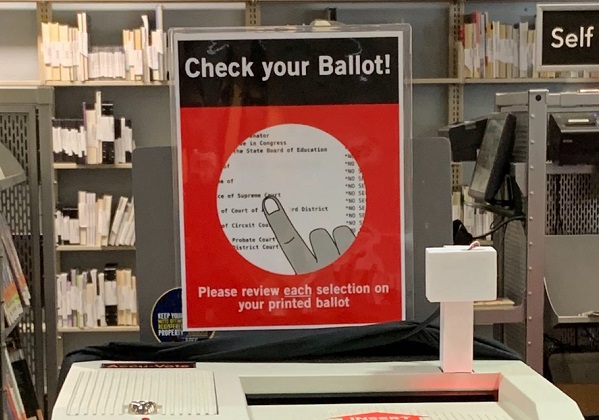
Many voters across the country will cast ballots this year on machines called ballot-marking devices (BMDs), which combine the convenience of touchscreen technology with an auditable paper trail. However, the system relies on voters to identify errors.
That could be a problem according to a U-M report published in early January. According to the study, only 6.6% of voters in a mock Michigan election discovered mistakes that were deliberately introduced into the machines to mimic the work of a hacker. Only 40% of participants bothered to check the ballots without being prompted.
The U-M study determined that the largely unproven BMD machines carry risks and vulnerabilities capable of undermining the integrity of elections in 2020. “I don’t think we’re too flawed as a species to execute democracy, but we need to use the tools that are available to us that ensure the credibility of our results. BMDs have not been proved to be safe and effective,” said J. Alex Halderman, a computer science professor an author of the report.
